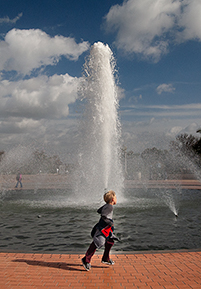As you all can tell (after living in North Carolina 15 years, I have come to not only accept but embrace you all and how well it fills its linguistic niche), I haven’t posted much lately, not that this is important to you all. Rather, I’ve spent our tedious post-election days thus: waiting for the grown-ups to stop reading The Baby his favorite stories and put him to bed; avoiding the maskless; trying to keep my weight in check; putting the finishing touches on a recording; and reading a disheartening book.
Said book, published late last year, is Antisocial: Online Extremists, Techno-Utopians, and the Hijacking of the American Conversation by New Yorker writer Andrew Marantz. I learned of it via a late-night listen to the Making Sense podcast by author/philosopher Sam Harris. Antisocial is a first-person dive into a subject that has bothered me for years: where did all the trolls come from? And why does it feel like there are so many of them?*
Marantz’s account starts at the “DeploraBall” [sic] event held in Washington, D.C., on the eve of Trump’s 2017 inauguration. The event serves to introduce the reader to the various alt-right characters who staged and/or attended the DeploraBall not so much to celebrate Trump’s victory but to take measure of their own strength and congratulate themselves.
Alt-right is probably the wrong, or at least off-target, word to characterize the subjects of Marantz’s book. The self-styled leaders of this haphazard “movement” grappled with what to call themselves and how to distinguish themselves from Nazis — not because of some philosophical disagreement they have with Nazis but because Nazism is a “toxic brand.” Me, I would call them social arsonists. I thought about social anarchists, but that would imply that these abject self-promoters have something like a philosophy. No, today’s trolls just enjoy making and/or watching society burn, winning attention points along the way. At least that’s my take from reading Antisocial.
The recurrent theme of Antisocial is this: conflict is attention and attention is influence. This is why those who believe that influence signifies self-worth are led to create conflict.
Like most books, the first third of Antisocial conveys two-thirds of its message. But it is an important message — if you read just the first third of the book and return it to the library, you will have insights you didn’t have before. You might be inspired to quit Facebook and treat most meme-posts on social media sites as craven attempts to trigger you, by trolls who only care about elevating and monetizing themselves and take pride in doing so.
Antisocial is both sad and scary. Sad because it shows how it isn’t “your father’s internet” anymore (let alone your father’s Democrats, Republicans and Libertarians) and how blind we’ve been to the rise of social arson. And scary, because it reminds us that shared values are like mountains: great things, but once eroded require tectonic forces to rebuild.
________



Sigh . . . I know about “Those who do not remember the [recent] past . . .”, and, although I’ve never done FaceBook, etc., I’ve come across some really crazy but objectively rational stuff about how the Flat-Earthers and QAnon adherents share traits. Yet – I’m trying to focus on looking ahead to Jan. 20 and being optimistic about what should / might come next. And: good vibes to y’all.
Sam Harris has been one of the few voices that has remained clear-headed through the last four years, despite being accused of the worst Trump derangement syndrome out of anyone in the IDW crowd.
The modern internet is making it increasingly difficult to distinguish honest conversation from grift, since more and more would-be pundits are realizing that there’s a lot of money to be made from keeping people outraged. Sam Harris seems to be mostly grift-free, but I’ve been skeptical recently about some other “IDW” figures, particularly the Weinsteins.
Anyway, a thought I’ve had recently is that in the years before social media, the political “center” has been a natural equilibrium that one tends toward with enough exposure to the media of the time. Whereas today’s internet, and especially social media, has made the center into an unstable equilibrium from which you’re now pulled and drawn into more and more extreme forms of the left or right. In other words, the center has gone from a concave depression into a convex hill, if that makes sense.
Internet cesspools like 4chan have existed long before our current disaster of a political landscape, but only recently have tech companies figured out how the cesspool can be monetized and scaled up.
Nice to hear from you again, db, and thanks for your comments. I’m going to have to look up what “IDW” is, but otherwise I’m with you. I hope you and your family have been staying well — best wishes.